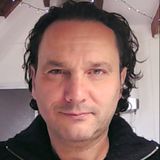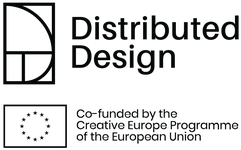Cities are potential engines of the transition towards a circular economy. The City of Amsterdam is one of the early adopters of the circular economy concept at city level. Closed loops, value generation, innovative business models, and modular designs – those are not only principles to guide the transition to circular cities, but also principles distributed designers have been working with for years. In our series Distributed & Regenerative Design, we introduce you to some of the creative talents making an impact. In this article, we interview N. Tayfun Yalcin who is part of the permaculture design, consultancy, and landscaping company Towards Nature where they create naturally balanced environments and sustainable lifestyles.
Can you give us a description of your project?
My passion is creating naturally balanced environments and sustainable lifestyles, using Permaculture understanding and techniques. In this project, I aim to create spaces that combine community building, edible and regenerative landscaping, education, food production, and living.

In what way is your work regenerative and distributed??
In all aspects. The design meets the needs of affordable Housing, environmental balance and resilience, social connection and community building, regenerative landscaping, and reducing nitrogen emission. The design itself is based on the Permaculture concept. It includes Food forests, growing beds, and community-managed areas with flowers, herbs, berries, and perennial and edible flowers. It connects people and implants them in productive, naturally balanced surroundings. Also, I’m trying to open the design for more productive, regenerative, diverse landscapes to everybody.
How far along are you with this project?
I applied to several municipalities, but the design doesn’t yet fit into any “bestemmingsplan” (zoning plan). So now I contacted three different architects and we are applying for temporary spaces in places like Waterland and Almere.
What drives you personally to work on this project?
I was a financial analyst before. But this became my passion and I changed my whole career. I chose this as a job for myself. My personal satisfaction is that I make a difference. That I’m doing something new. I believe it can bring a big change for people.
How do you combine this idea with the competition for space in the Netherlands and the need for a million new houses?
Imagine we build 1 million more houses. Is that going to solve the housing crisis? Is our way of Building and living worked in a sustainable way? Is it regenerative? If it worked, why are we searching different ways? Repeating the same thing doesn’t bring a new thing. We need to build sustainable communities, not only buildings. If we really want to live sustainably and regeneratively, we have to change the way we think. The building sector is the key to making this change.
I think this idea is actually a new opportunity for farmers. They have been misled and are now angry. But if they open their land to the communities for Permaculture designed housing/landscaping, they could create new and ongoing income. I want farmers to rent their land to the communities and the communities to do farming with only gardening. The communities manage the land in a designed and regenerative way and use it productively. The value of the land is going to increase because it’s going to be more productive, more diverse, and more fertile.

How might we make regenerative design the norm?
We need to have examples. I only need to create one community and then I can show people how it works. I have designed and created Community Gardens, and now people come and see what it is like, what I mean. With the new way of designing our environments, I can show people and Municipalities and Farmers this alternative that everyone can see and understand. Once it is understood and the design starts to become productive, regenerative, and diverse, then it’s going to boom. I’m sure of it.
—
Distributed & Regenerative Design is part of our program for Distributed Design, the exchange and networking hub for the European maker movement. Want to know more about Distributed & Regenerative Design? Check all the Talent interviews and mark Friday, November 4 from 20.00-21.30 in your calendars for our event in Pakhuis de Zwijger.










